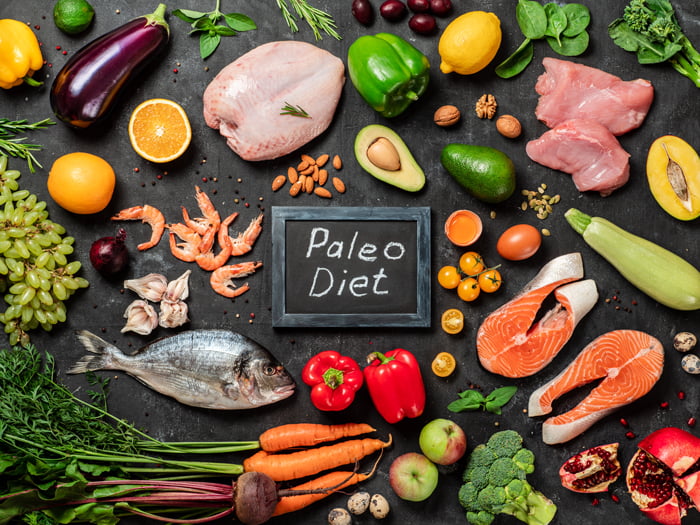There is much criticism regarding the Paleo diet, resulting in lots of conflicting information all over the internet. Who is specifying the correct information, and who is making up their own versions? I will try to cover this one with my research for you.
What does the paleo diet entails
The paleo diet entails the elimination of grains, dairy and gluten, whilst encouraging whole foods, veggies, meats and fat. Surprisingly, history suggests that the modern paleo diet does not in fact mimic the diet during the Palaeolithic era. The reality is, that cavemen really did not eat a lot of meat. They were more inclined to gather rather than hunt. The majority of their diet consisted of grasses and other vegetation in which they could easily harvest.
In light of this stark information, you can assume that the Paleo diet in reality, means you will be consuming a lot less meats, focusing mainly on greens and vegetable sources.
The paleo diet also encourages the eliminations of grains, dairy, sugar and gluten products. Our bodies are not programmed to properly digest these and can cause an array of health issues. Whist to some extent this is true, it’s not imperative that everyone takes these steps. If you have allergies, intolerance’s and perhaps digestion issues, then it would be of your best interests to eliminate some, if not all of these for optimal health.
Whilst sugar is sited as a culprit for many disease, this is usually only apparent within individuals who eat an excessive amount, resulting in many metabolic and health issues. Having one sweet on odd occasions does not cause prolific health issues.
5 reasons why the Paleo diet may be difficult to follow:
- If you are an avid traveler, it may be very challenging to find suitable replacement foods, depending on where you are.
- If you eat out a lot for work, pleasure or convenience, it may be very expensive if not challenging to find a healthy salad without the added extras. It may also be expensive if you are taking away a lot of ingredients from the dish in order to cater to your food.
- The supposed over consumption of meat products can cause health issues, especially the emphasis on processed forms such as bacon. Meats mostly contain antibiotics, and animals are fed large amounts of grains, corn and soy to fatten them up for slaughtering. If you eat the animal, you are ingesting this too. Over time, it can make you sick and constantly suffering from inflammation in the joints and gut.
- It may be challenging to deny food groups on special occasions, such as birthdays or Christmas. It can make one feel isolated and restricted, which is not sustainable long term
- It can be time consuming and costly to plan for. Organic meats and fish are quite expensive, and can be very hard to find in certain suburbs. This can make it very hard to sustain long term.
5 reasons why the Paleo diet may be great for you
- It can help you heal any gut or digestive issues by eliminating culprit foods.
- Lowers LDL cholesterol and blood pressure
- The diet can help you manage your weight long term, and also assist in weight loss and changes in body composition
- Includes lots of healthy fats which combat inflammation, and also aid in weight loss and longevity
- Can assist in the quality of life for people suffering from Multiple Sclerosis, due to the elimination of grains, and emphasis on whole foods
As you can see, there are a few pros and cons of this diet, very similar to any diet you decide to try out. The main advantage is that it does get you to begin thinking about the effects certain foods have on your health and well being. As with any diet, do consider all aspects and then decide if you would like to move ahead. I personally have tried the paleo diet, and found it to be very effective, mostly because of all the digestion issues and allergies I have. It eliminates inflammation markers immediately, providing quality of life and puts you on the pathway towards good health.
